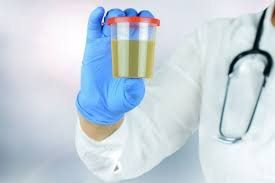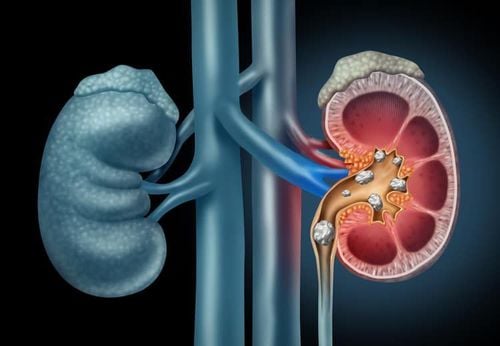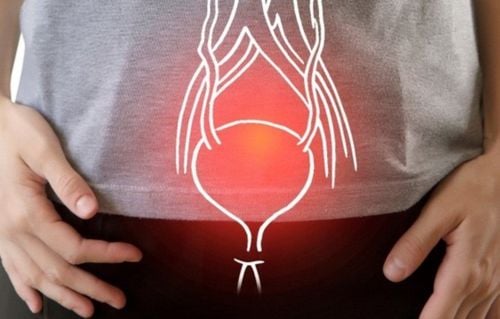The kidneys are organs that help the body process about 200 liters of blood, remove excess water and waste products, eliminate toxins, and keep the body functioning well. If the kidneys are weak, they cannot remove toxins and waste from the body, leading to their accumulation and hindering the normal function of the kidneys, liver, and other organs. This can result in fatigue, stomach pain, headaches, water retention, and other issues. Read on to learn more about natural ways to cleanse your kidneys at home to help them recover.
1. Natural Ways to Cleanse Your Kidneys at Home
The kidneys are two small organs on either side of the spine, below your ribs.
Healthy kidneys play an important role in:
- Removing excess waste
- Balancing electrolytes
- Producing hormones
The adult human body is composed of about 60% water, and every organ, from the brain to the liver, needs water to function. As the body's filtration system, the kidneys need water to produce urine. Urine is the primary waste product that allows the body to eliminate unwanted or unnecessary substances. When water intake is low, urine output is low. Low urine output can lead to kidney dysfunction, such as the formation of kidney stones. Drinking enough water is crucial for the kidneys to properly eliminate all excess waste. This is especially important during the kidney cleansing process. In the absence of disease, a balanced diet and adequate water intake are usually sufficient to keep your kidneys healthy. However, certain foods, herbs, and supplements can help support strong kidneys. From a morning glass of water to a cup of herbal tea, here are four ways to cleanse your kidneys, keep them healthy, and ensure they function optimally.
Some kidney-supporting foods include:
- Grapes, peanuts, and some berries contain the beneficial compound resveratrol. In an animal study, researchers found that resveratrol could reduce kidney inflammation in mice with polycystic kidney disease. A handful of red grapes makes a great afternoon snack and tastes even better when frozen!
- Cranberries are often praised for their bladder health benefits. A clinical trial published in the Journal of Nutrition demonstrated that women who consumed dried, sweetened cranberries daily for 2 weeks had a reduced rate of urinary tract infections. Dried cranberries are a delicious sweet addition to trail mix, salads, or even oatmeal.
- Seaweed, in addition to supporting the kidneys, is beneficial for the pancreas and liver. In a 2014 animal trial, rats fed edible seaweed for 22 days showed reduced damage to both the kidneys and liver due to diabetes.
- Calcium-rich foods: Many people believe that avoiding calcium can help prevent kidney stones. In reality, the opposite is true. Too much oxalate in the urine can lead to kidney stones. Calcium is needed to bind with oxalate, reducing its absorption and excretion. You can meet the recommended daily calcium intake of 1.2 grams by consuming calcium-rich foods such as soy or almond milk, tofu, and cereals.
- Some additional nutrients include: vitamin B6, omega 3, kali nitrat
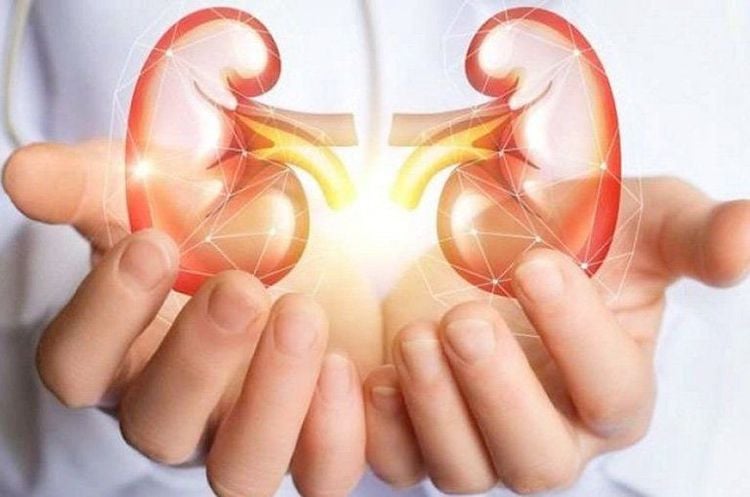
Vitamin B6
Vitamin B6 is an important cofactor in many metabolic reactions. B6 is necessary for the metabolism of glyoxylate, which can become oxalate instead of glycine if B6 is deficient.
As mentioned above, too much oxalate can lead to kidney stones.
Supplementing with a daily B-complex vitamin that provides at least 50 milligrams of B6 is recommended.
According to the Food and Nutrition Board (FNB), adults should not take more than 100 mg of vitamin B6 per day unless they are receiving it as part of medical treatment under the supervision of a healthcare provider.
Omega-3
The standard Western diet often contains high levels of inflammatory omega-6 fatty acids and low levels of beneficial omega-3 fatty acids.
Research shows that high omega-6 intake can lead to kidney stone formation. Increasing omega-3 intake can naturally reduce omega-6 metabolism, with the best absorption ratio being 1:1.
Docosahexaenoic acid (DHA) and eicosapentaenoic acid (EPA) are two of the most important omega-3 fatty acids.
Supplementing with high-quality fish oil daily that contains 1.2 grams of both EPA and DHA is recommended.
Potassium Nitrate
Potassium is essential for electrolyte balance and urine pH balance.
Potassium citrate therapy can help reduce kidney stone formation, especially in those with recurrent episodes.
For individuals with a history of other kidney issues, consult a doctor before supplementing with potassium.
Supplementing with a daily multivitamin or multimineral that contains potassium is recommended.
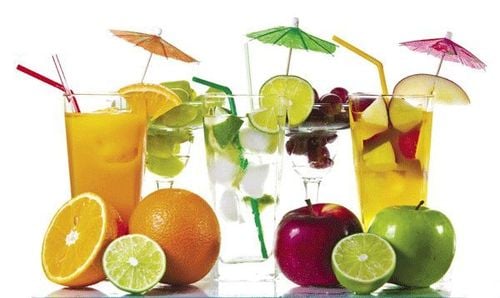
2. Eight Easy Ways to Cleanse Your Kidneys
Method 1: Apple cider vinegar is effective in preventing kidney oxidation. It increases antioxidant levels in the body, balances blood sugar, and lowers blood pressure, creating optimal conditions for kidney health. Apple cider vinegar contains citric acid, which dissolves kidney stones. Regular consumption of apple cider vinegar also helps eliminate toxins from the kidneys.
Method 2: Red beans not only support the kidneys but also help remove waste and toxins from the kidneys and effectively pass kidney stones. Red beans are rich in vitamin B, fiber, and several minerals that help cleanse the kidneys and enhance urinary tract function.
Method 3: Lemon water is naturally acidic and increases citrate levels in the urine, discouraging kidney stone formation. Lemon water also filters the blood and removes waste and other toxins. Drinking diluted lemon water daily reduces the rate of kidney stone formation and dissolves calcium oxalate crystals, the most common component of kidney stones. For those with kidney stones, combining lemon with olive oil ensures smooth stone passage.
Method 4: Watermelon is a mild diuretic. It hydrates and cleanses the kidneys. It is also rich in lycopene, which improves heart health and ensures proper kidney function. Watermelon contains a large amount of potassium salt, which helps regulate urine acidity and prevent stone formation. In fact, eating watermelon regularly is very beneficial for kidney health.
Method 5: Both pomegranate juice and seeds contain a large amount of potassium and are effective in removing kidney stones. Potassium reduces urine acidity, preventing stone formation due to its astringent properties, blocking mineral crystallization, and eliminating toxins and waste from the kidneys.
Method 6: Basil is an effective diuretic. It removes kidney stones and improves kidney function. Basil also reduces uric acid levels in the blood and improves kidney health. Its components, such as essential oils and acetic acid, break down kidney stones and allow smooth elimination. Basil is also a pain reliever.
Eating watermelon is a simple way to cleanse your kidneys
Method 7: Soaking dates in water for 24 hours and then consuming them after removing the seeds helps dissolve and expel kidney stones. Dates are rich in fiber, which reduces the risk of kidney stones. The magnesium content in dates also helps cleanse the kidneys.
Method 8: Drinking tea made from dried dandelion or fresh dandelion roots (pulled from the ground) helps cleanse the kidneys. Dandelion is a kidney tonic that strengthens the kidneys, stimulates bile production to improve digestion, and minimizes waste reaching the kidneys.
To arrange an appointment, please call HOTLINE or make your reservation directly HERE. You may also download the MyVinmec app to schedule appointments faster and manage your reservations more conveniently.





